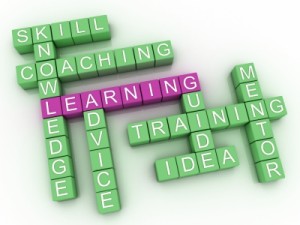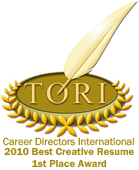
Collaborating with your career coach makes the experience even more valuable.
There are lots of kinds of career coaches. Two major categories are those who help you choose and pursue your next career direction and those who help you keep and develop the job you already have. For our purposes, a career coach is someone who helps you choose and target your career goals.
In all coaching programs
No matter what type of career coaching program you choose, collaboration is key. The more you cooperate with your coach, the more valuable your experience will be.
Make your coaching project a priority: A coaching program may be several weeks to several months in length. Commit to the program, and set aside time for it each week. Finish your assigned work and submit it on time. What you get out of the program is in direct proportion to what you put into it.
There is a process in place, and you will be asked to follow it. This may take a bit of faith, because it may not be immediately clear how the process will lead you to a career decision or a successful job search. Be patient. Be open to a new idea or a new approach. For example, every single client who has finished the Workwrite Career Exploration coaching program has chosen a direction and pursued that path. That successful outcome was not evident to every person on the first day of coaching.
Your coach does not give advice or make decisions for you: By nature, coaching is a non-directive relationship. Coaches ask questions and guide conversations. They listen and reflect. Other than giving homework assignments, they do not tell you what you should do.
Career Exploration coaching
The goal of Career Exploration is to choose your next career direction. An entry-level candidate might hire a coach to help decide on a career path. A professional or executive candidate might hire a coach to help them change careers or find a new opportunity within an existing career. Career Exploration can help you answer the question, “What do I want to be when I grow up?” (Hint: We never stop asking this.)
Your coach is not a therapist or a secretary: Many people who come to Career Exploration are quite upset about not being able to choose a direction on their own. They feel frustrated, inadequate, and stuck. Often, they want to blame their boss, their spouse, their parents, or their coworkers for their miserable existence. And they want to make sure the coach knows all about it.
Unfortunately, this woeful story rarely helps the client move forward. A little background is fine to help the coach understand where the starting block is. After that, the direction needs to be toward the future. What has happened in the past does not have to shape what will happen next.
The coach will likely turn the conversation toward visioning, planning, and decision-making. If this hurts your feelings, consider hiring a therapist to work in conjunction with your coach. Therapists can help resolve issues from the past and give you a forum in which to express the feelings you have about painful experiences. A coach doesn’t have this type of training and is not qualified to provide therapy.
Likewise, your coach will be directing, guiding, and encouraging, but the hands-on work is yours. Your coach will likely suggest a starting place, and you will do the research. Your coach will ask questions and assign homework to help you analyze the fit of a position, and you will make the decision.
Take a stand for yourself: You will be asked to complete several assignments that require you to have and express an opinion. Most of these will have to do with what you want out of your life and career. You don’t need to know those answers before coaching starts. You do need the willingness to dig deeply to find those answers inside yourself.
Job Search Strategy coaching
Once you have chosen the new direction for your career, you need to know how to get there. Clicking your ruby slippers or wiggling your nose only works on TV. In real life, we have to actually talk to people and make decisions.
Think of your coach as a teacher: The coach does not find jobs for you or find positions for you to apply for. The coach teaches you a process that gives you a better chance of finding a keeping a position you will love for a long time. As with the Career Exploration, you do the work.
Be engaged: You will receive a short e-book that explains the process of a successful job search. Read the book. Don’t assume you already know how to look for a job. Chances are you know the process that puts you in direct competition with hundreds or even thousands of other candidate. It gives you about a 10% chance of landing that position. Those odds aren’t good enough for you.
Be proactive and prepared: The main part of Job Search Strategy coaching is problem solving. Once you understand the process, we will spend a few minutes each week solving problems that you encounter in your search. In order for us to have a problem-solving conversation, you must a) be looking for a job, and b) notice obstacles you would like to remove from your search. If either of those items is missing, you will not have an effective coaching session. I hate wasting money, yours or mine! Get the most out of your coaching by being prepared.
If either or both of these types of coaching sound like they would help you find and land the job you’re dreaming of, contact me right away to talk about how we can make that happen.
Related
Image courtesy David Castillo Dominici via freedigitalphotos.net.








